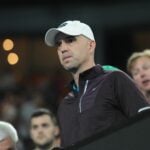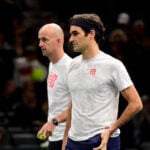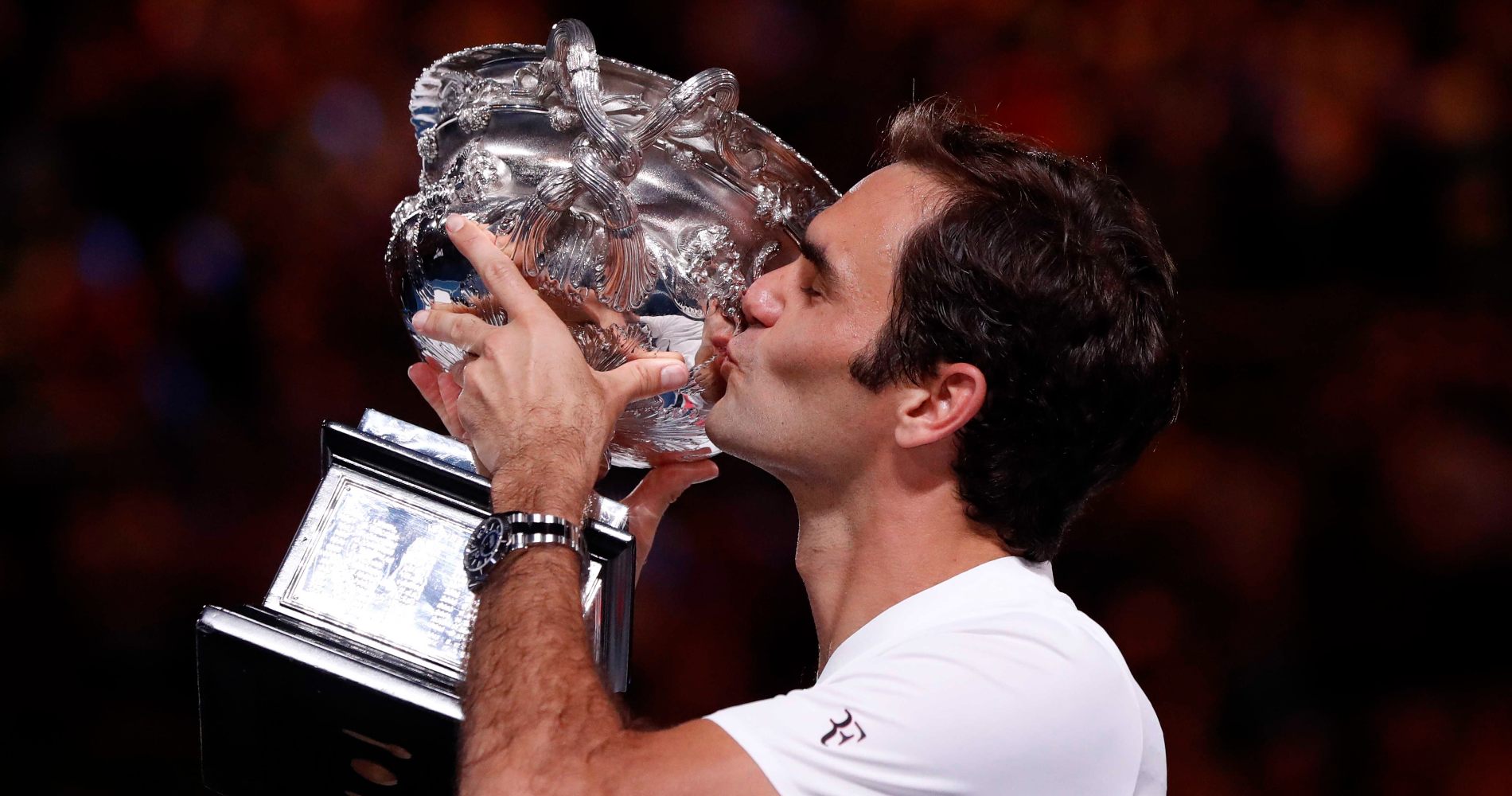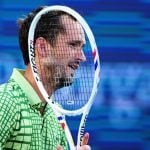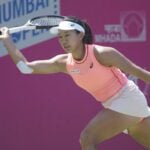Ivan Ljubicic interview: “Money doesn’t create players”
In an exclusive interview with Tennis Majors, the Croat explains why he accepted his new job at the French Tennis Federation, his first since the retirement of Roger Federer
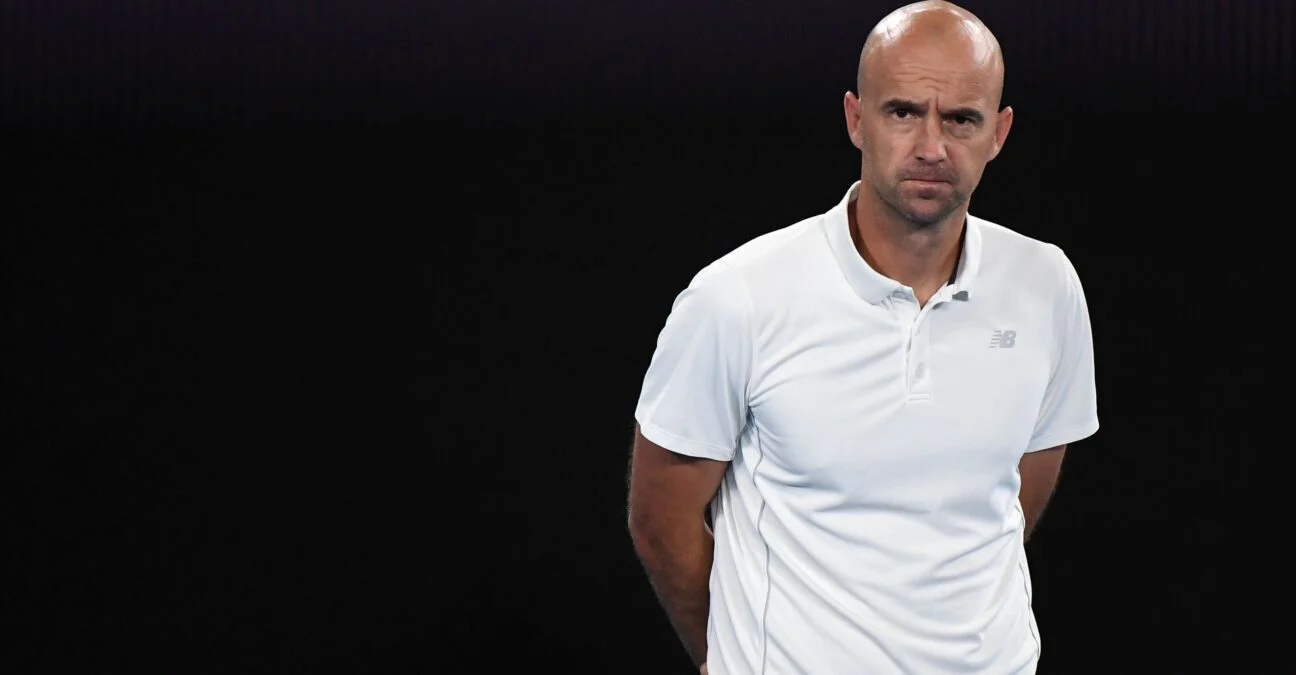 Ivan Ljubicic | © Panoramic
Ivan Ljubicic | © Panoramic
Ivan Ljubicic, a former top 3 player and the former coach of Roger Federer and Milos Raonic, is joining the FFT ranks. Also in charge of an academy in Croatia, he’s been put in charge of trying to trigger results from the young French generation. With Paris 2024 in mind but not only.
Ljubicic also wants to have more chats with Jo-Wilfried Tsonga, Gaël Monfils, Richard Gasquet, and Gilles Simon to hear their thoughts about what’s going on and share their experiences. Despite numerous other offers, Ljubicic chose France, and in an exclusive interview with Tennis Majors, he explains why and what he hopes he can bring to the role. After Louis Borfiga, the FFT continues to try to inject winning mindsets and winning CVs into the ranks.
When were you approached by Gilles Moretton at the FFT for this new role?
“We know each other from when I was a player as my first title was in Lyon (an event created by Moretton) in 2001 (he also won it in 2009). In the meantime, we had some good conversations. With him, I always felt like it was very open and honest conversations and I always appreciate that, so then I saw him in London at the Laver Cup when Roger retired. I was really happy to see him and then we had a coffee and we spoke about tennis and then the conversation went into ‘okay, what are you going to do now?’ I told him I didn’t know yet, that I had already received some requests from players and from different federations and that I was just going to take time until I could decide by the end of the year.”
“I guess at that moment, he probably thought ‘okay, maybe Ivan can help us let’s see if we can do something together’ so he invited me to Bercy, I was there for a day and a half, and then I went to Paris again a couple of weeks ago, just to spend some time also with Nicolas Escudé and Paul-Henri Mathieu, and also to visit the CNE and the things that I would at least need to see before. And then very quickly we started to talk about collaboration and we agreed. I’m really grateful that these things went fast because sometimes you get stuck in the negotiation and then it’s unpleasant for everybody. It’s exciting honestly. It’s another thing in my life that I never thought I’d be doing but that’s why it’s exciting. This is gonna be definitely different than anything else because, let’s put it this way, if I do an amazing job I will know in five years! And I will never be sure if it’s me or somebody else!”
You expect France’s tennis federation to produce or to help produce a lot of players, right? So it is intriguing for me
Ivan Ljubicic
Did you hesitate? How did they convince you? Because French tennis right now is a bit of a work in progress and maybe not the most peaceful job you might have wished for?
“I honestly didn’t even have time to hesitate. Everything happened so quickly. But it’s one of those things that you want to try, because I consider the French Tennis Federation or France as the biggest Tennis Federation in the world. Some will get maybe offended now. The fact is that I believe that the French tennis market is the biggest market in the world. So it always puzzled me, it was always intriguing for me even without being French. It’s kind of a castle that you cannot penetrate so maybe it’s another reason why I did not hesitate because I want to see how it is from the other side and to be part of this huge structure and amazing potential. You expect France’s tennis federation to produce or to help produce a lot of players, right? So it is intriguing for me, honestly: I’m not gonna hide it. Just to see what I’m going to find. That’s what my first step will be, to really get to know the structure, the people, the coaches, and the players.”
I guess that’s a French mystery? A federation with so much money but right now struggling to get results matching the investment?
“Money doesn’t create players. Of course, it’s great to have money, but it can actually almost be a negative thing. If the players and the families or parents always expect somebody else to solve their problem, this could be the beginning of the problem. I don’t see money as a solution to create players. It definitely helps in certain ways in certain situations, but it’s definitely not a guarantee to create champions, top 10 or top 5 players: money cannot create those.”
In another interview, you said French tennis has lost the feeling of being ambitious. For a former top player and a former top player's coach like you, it surely sounds crazy. How do you lose ambition and so how do you get it back? And following this money topic maybe the issue is that French tennis is too comfortable.
“Honestly, I don’t know. That’s why I’m hired. To say why it is like that. You see now the Croatian football team: it kind of goes the same way with tennis because when you see your countrymen or your friends doing well, it becomes normal for you also to have high expectations. Because you see people close to you doing well so you expect yourself to do well as well. So the most difficult part is to be the first one. But why I say this it’s that it’s very difficult mentally if you don’t have somebody in front of you to show you the way. I need to find out but I’m afraid that in France it could be that the kids, you know, six to 14, 16 or 18 years old in France now, almost don’t believe that they can make it. I’m not saying it in a drastic way but they might be feeling that it’s harder than maybe it is.
“And because we don’t see anybody in front of them because, you know, if you’re 14 or 16 years old, now you don’t remember maybe the Tsonga, Gasquet, and Monfils on the Tour and you don’t feel that they’re close to you. So it could be that even if I hope that it’s not the case. And I also hope that the gap won’t be very long. But the moment you break the ice, the moment one of them gets going then it’s very easy. This is what’s happening in Italian and Canadian tennis. Then the landslide follows, then everybody else follows and it’s much easier to then build on any new things.
The first one, it’s always the most difficult one, but the others will follow. And now I need to see if there’s a way I can help the French players that are up there at the moment to get better. That’s one thing, which maybe it’s not an immediate priority but it will be much easier for everybody in the Federation and then below if France had to top 10 (player). But yes, it will be important for me to understand how these kids feel: do they feel they can be the best or are they afraid they are missing something? And this will be really the first step for me.”
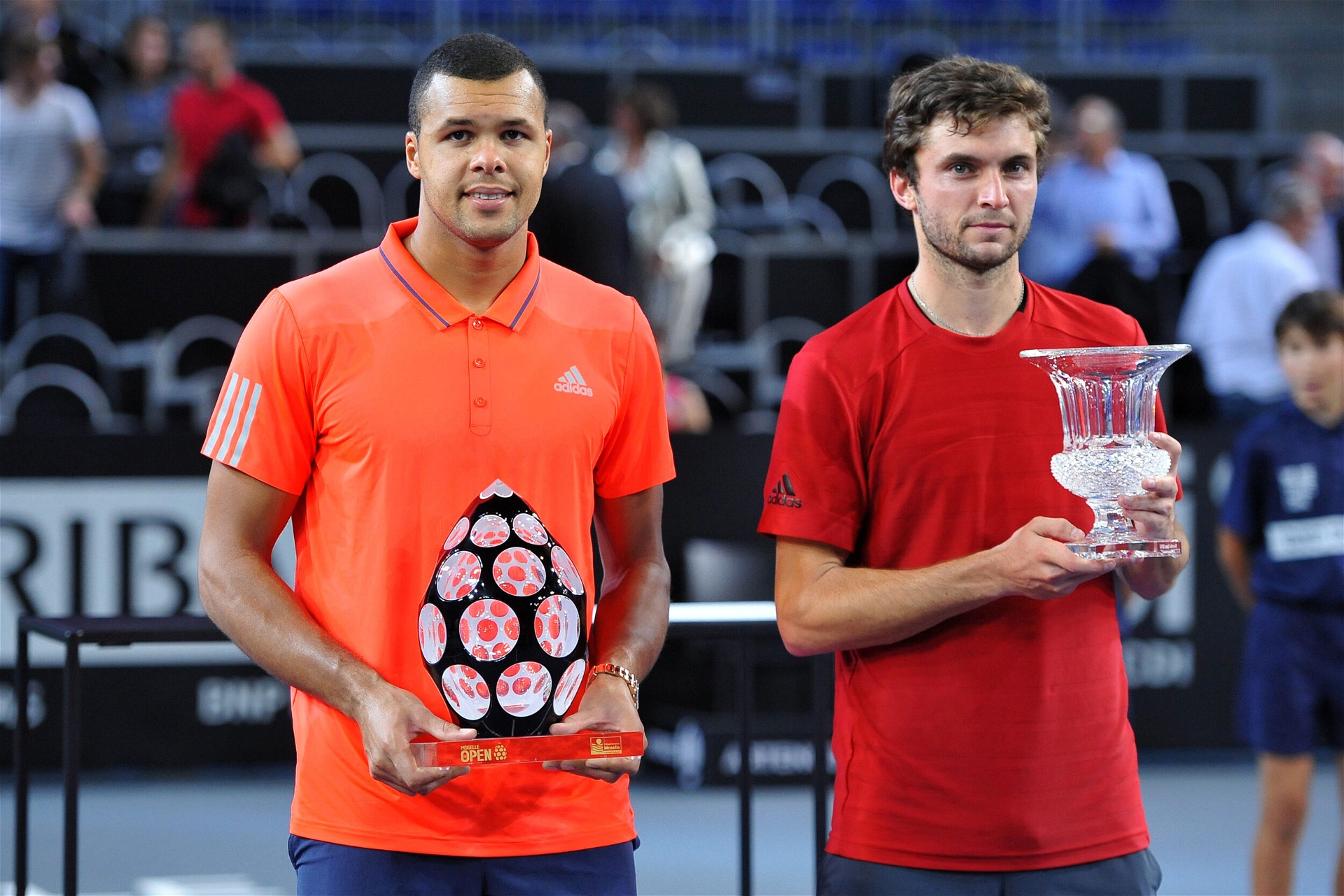
You cannot achieve greatness in the comfort zone
Ivan Ljubicic
Gilles Moretton says you come here to share a winning mindset: what does that mean to you? How do you plan to implement that: how can you make people change their cultural habits to get that winning mindset?
“It is possible. It takes a lot of time, honestly: you cannot change the mindset in two months, five months, or even one year. It’s something that goes through a generation. What is a winning mindset, I don’t know but I am the way I am: I have always very high expectations for myself and for the people around me. I hope that it is going to translate down. It’s definitely one thing that will be uncomfortable to some, but you cannot achieve greatness in the comfort zone. So in that sense, I’m very well aware that I’m not going to be liked generally. But I’m not the bad guy, if it’d feel uncomfortable with somebody it’d be because I expect more from them and because I believe that it can be done and not because I’m going to have unrealistic expectations. High goals can or cannot be achieved, but I think it’s very important to believe that you can and that you really have to shoot for the stars because you may get there! That’s my philosophy.”
So the idea is to give yourself until Monte-Carlo in April to get an overview of the situation, right?
“Yes, I mean, this is the idea. I mean, honestly, I don’t feel pressure from anybody. And I want to take my time, you know, and again, I know that it cannot be years. But I just need kind of, to get to know: I’m gonna go to Poitiers at the beginning of the year, and to Tarbes. I will go back again, of course to Paris, and I want to visit big clubs, and centres to meet as many people as I can, and get to know, the mentality, the structure, and everything that I can. And then, yes, this is more or less the goal but it’s not a precise date or anything like that. But definitely, the sooner the better that I come up with some kind of ideas, and then we go from there. Of course, we have Olympic Games, basically, which is around the corner. You cannot do miracles. Again, you cannot do miracles in here. But I am definitely part of the team and I want to help to win some medals. I mean, France, French tennis did it in the past. And I remember I was in Sydney (in 2000) when Arnaud Di Pasquale beat Roger for the bronze medal. So I remember those times and I hope it can be done again in Paris which of course would be extremely special. and it can’t be done. Again, in a year and a half in Paris will be extremely special.”
I hope I’m not going to be seen as a negative figure
Ivan Ljubicic
It's not in the French tennis tradition to open doors to foreign experts. Are you expecting some cultural shock, or at least not to be welcomed by everybody? Have you been told that whatever you want to see being implemented, will be?
“I don’t know, this you would need to tell me! (He laughs) I’ve been living in Monaco for 25 years: it’s not France but it’s as close as it gets. I understand the mentality and again, I’m not coming here to be bad: I’m here to help. So I hope I’m not going to be seen as a negative figure. And again, I understand that some people will not share my views and my opinions, which is absolutely perfect and fine. But again, my goal is absolutely to help, to make the difference that is needed to break the ice.”
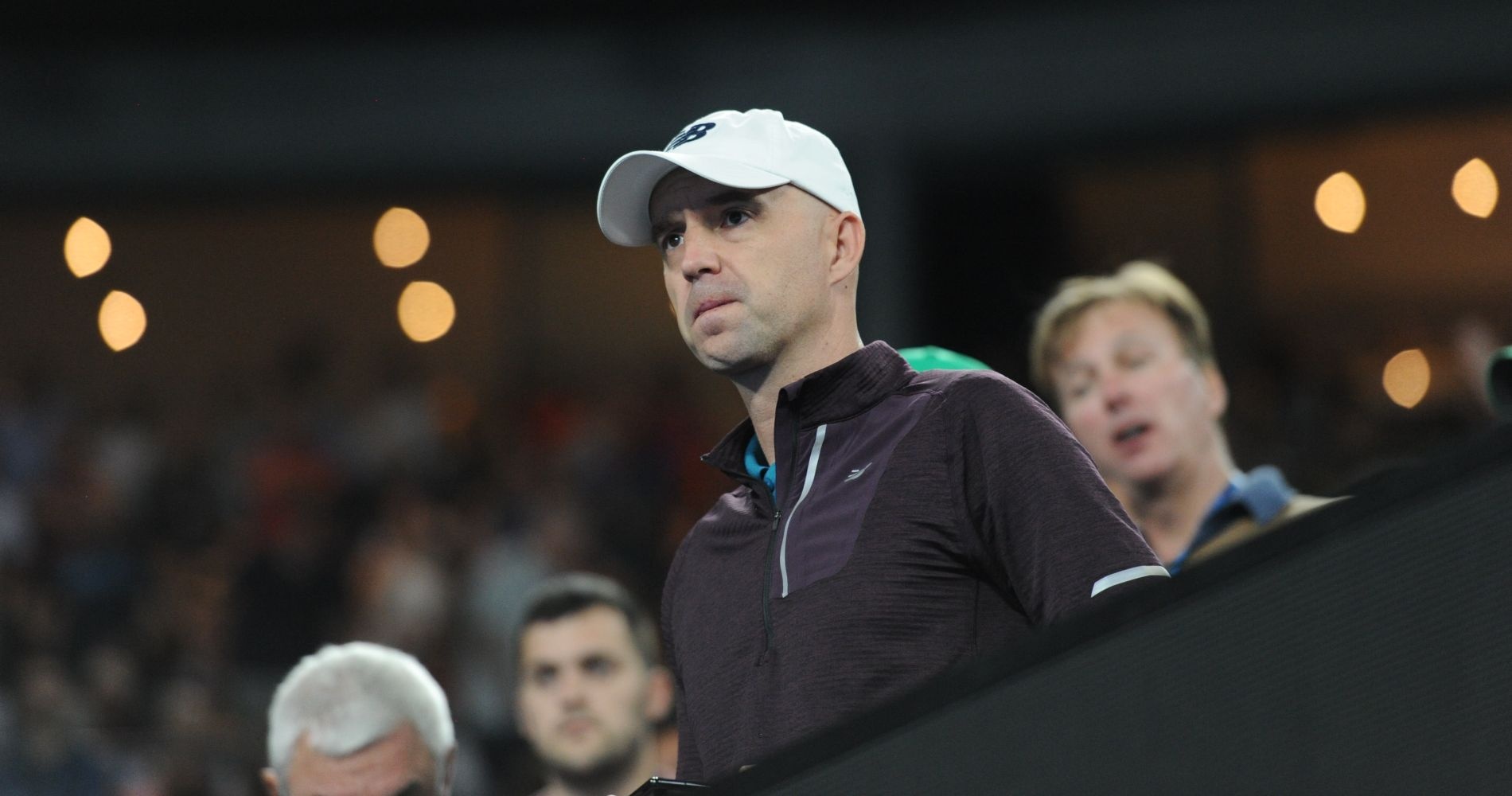
Not all former top players are good coaches but when they do, they offer a unique perspective because they have made the way to the top, they know the path. That's also what you can bring to the new generation of French tennis?
“Yes, that’s true. I mean, that’s I agree with that. Absolutely. I think when the top player is able to make the transformation to the coach, then it has definitely a different dimension. I always thought I did it with Raonic, I did it with Roger: I start with questions, I start with trying to understand, trying to listen instead of just stepping in saying, ‘Okay, this is the way I do that’ because usually, it cannot work. And especially in this kind of structure where my role is actually to help all the French players so you cannot just kind of come in and say’ okay, this is the way, and let’s go!’ because you probably gonna destroy a lot of players and it’s not the right way.”
Louis Borfiga came back from Canada and now you're joining the ranks: you're going to share with him some of the pressure of being expected to save French tennis?
“I’ve known Louis for a long time. And of course, I followed very closely the work he did with Canadian tennis. I’m very happy to work with him, and to be on the same side. But again this type of work takes time: Felix Auger-Aliassime or Denis Shapovalov didn’t come overnight. But yes I’m extremely happy to have Louis on the same side and to learn from him because he has tremendous experience.”
The Italian Federation made a lot of big and bold decisions
Ivan Ljubicic
You were coached by Riccardo Piatti and are still close to him, you know very well the Italian tennis structure: is this a system that France should take inspiration from?
“I think there are ways that need to be looked into. I am very familiar with Italian tennis. Their Federation made a lot of big and bold decisions like creating a TV channel and organizing the Next Gen Finals. Those are big commitments. They also have more Challengers than France and more international tournaments. And this is definitely something that I want to look into. Of course, they did some mistakes as well, but you don’t succeed, if you don’t try and so on the way you’re gonna make some mistakes. And I think this is something that will be needed. If you want to make changes, if you want to make a difference, you may have to make tough decisions, and you will also make mistakes, d there’s no question about it. But Italian tennis did something very interesting, but I’m definitely not going to try to copy what Italians are doing. But there are certain things that they do that need to be looked into, to understand. You cannot copy-paste systems, but you need to understand where they were and then what they did because they struggled for 40 years, going through a very long and dark time. And they finally managed to overcome it. “
People might not know it, but you can speak French: so, more practise on the way?
“Yes, but it’s very basic! Actually, I was discussing this with Gilles if we should mention my French in the statement, but then I asked them not to put it in because it could create unrealistic expectations. But actually, during the pandemic, I took quite intense French lessons so it helps me a lot. I can discuss daily routines but I will need to accelerate and accept that I will make many mistakes!”
